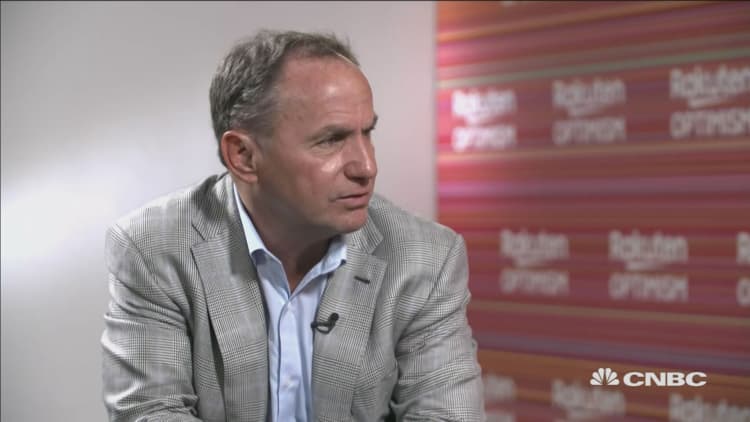
Intel has applied for licenses to sell some of its products to Huawei following the blacklisting of the Chinese technology giant and a subsequent easing of restrictions on the firm.
Earlier this year, Huawei was placed on the so-called U.S. Entity List, which restricts American firms from selling parts to Huawei. The Chinese firm relies on components from several American companies for products from laptops to smartphones.
President Donald Trump's administration later said that U.S. firms could sell to Huawei in instances where there are no national security threats.
Bob Swan, CEO of Intel, told CNBC Wednesday that his company had been selling some products to Huawei in the second quarter after determining what products were "within the rules of the law."
With the latest reprieve, companies must apply for a license to sell to Huawei, and Intel has done that.
"But the process now is that we file licenses to try to get approval and we've submitted quite a few licenses for our product and … the U.S. administration had announced last week that they're going to try to process the licenses from the industry in an expedient fashion so we are encouraged by that," Swan said, adding that he has no idea how long the applications will take.
When asked what products Intel was getting permission for, Swan said it was mainly its general purpose computing chips, which he feels do not pose any national security risk if sold to Huawei.
"For the most part, if you look at the lion's share of what we ship into China generally, but into Huawei who's a large customer of ours, it's general purpose compute. So general purpose product that we ship to all other cloud service providers," Swan said. "So that general purpose compute, we don't believe is what should be worrisome if the quest is to protect national security."
The restrictions on Huawei have hit the company to some extent. In June, Huawei told CNBC it was scrapping a planned laptop launch as a result of being blacklisted.
However, the company is also weathering the storm. It reported a more than 23% year-on-year rise in revenue for the first six months of 2019.


